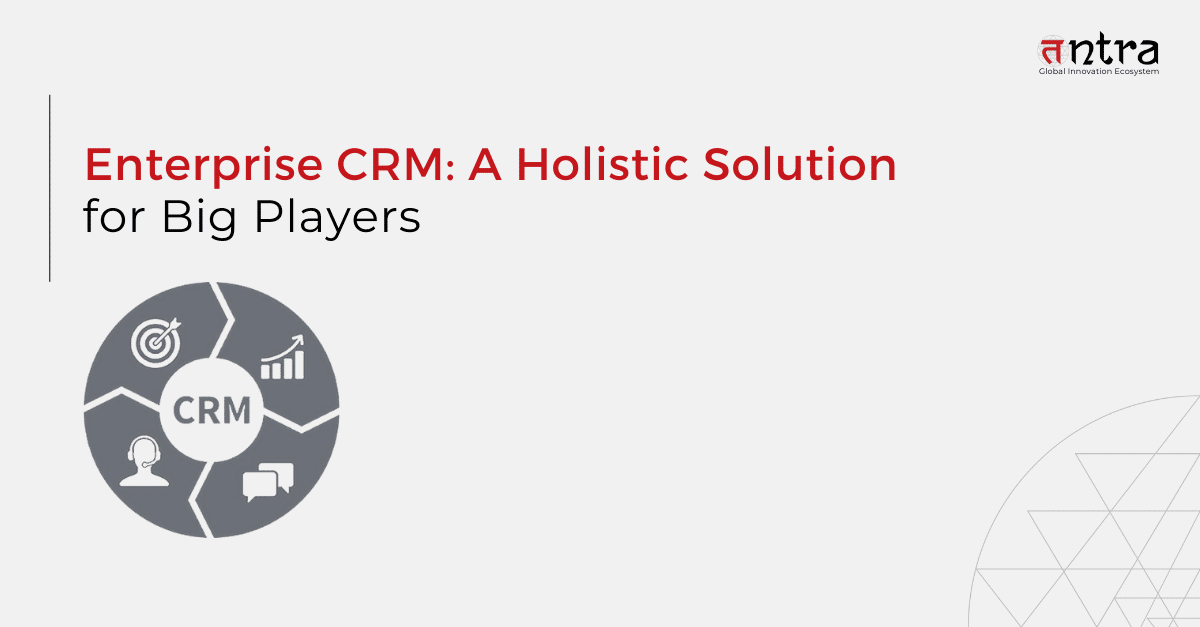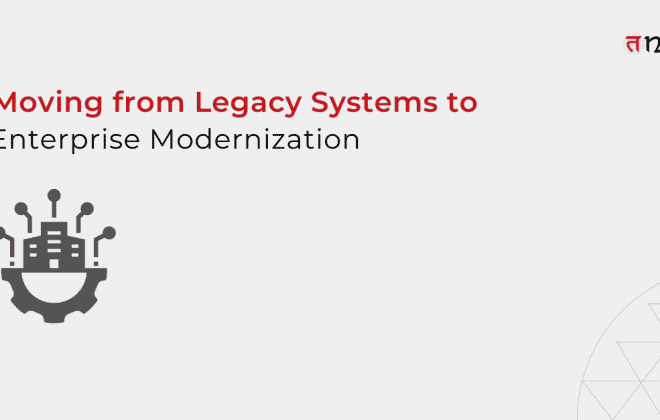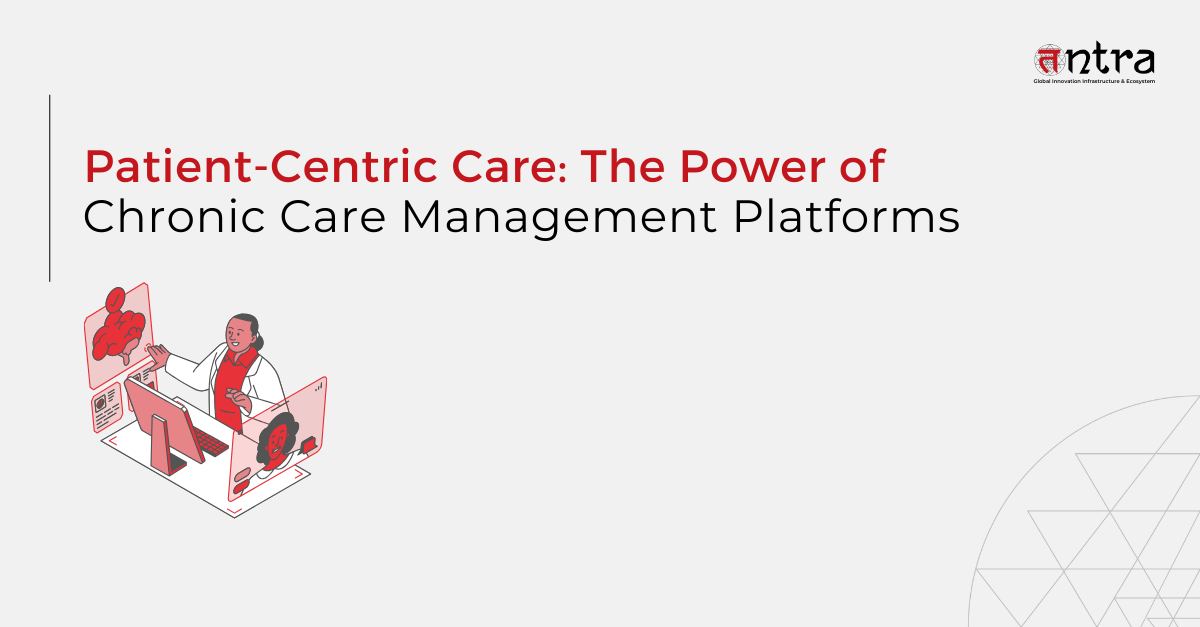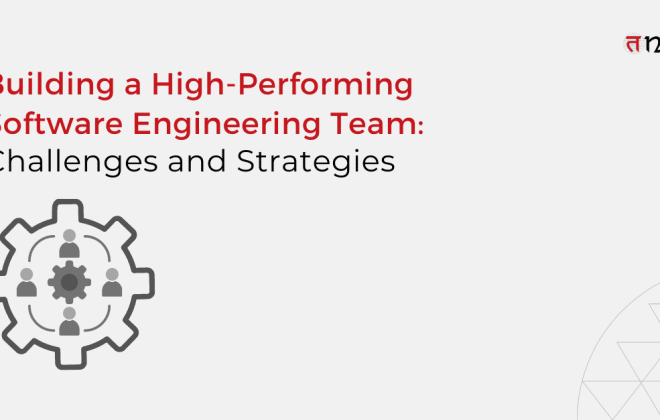
Enterprise CRM: A Holistic Solution for Big Players
Table of Contents
ToggleThe future of Customer Relationship Management (CRM) promises transformative benefits driven by advancements like automation, AI, IoT integration, personalization, and social media integration. These trends have led to improved customer experiences, streamlined operations, and enhanced decision-making. Embracing these innovations ensures businesses stay competitive and foster lasting customer relationships. As CRM evolves, organizations can expect greater efficiency, deeper insights, and increased agility in meeting customer needs, paving the way for sustained growth and success in the dynamic digital landscape.
General Motors prioritizes Customer Relationship Management (CRM) as vital for fostering loyalty, retention, and revenue growth. Their comprehensive CRM system centres on understanding and addressing customer needs throughout the journey. Central to this strategy is GM’s customer database, housing detailed information on preferences, behaviours, and purchase history.
Leveraging this data, personalized communications and targeted marketing messages are crafted for individual customers. Additionally, analytics tools aid in discerning behavioural patterns, enabling GM to foresee needs and adjust marketing strategies accordingly, thus reinforcing customer satisfaction and driving business success.
The enterprise CRM program at GM strongly emphasizes engaging customers at every level, from early awareness to follow-up after a purchase. GM distributes customized material and offers via email, direct mail, and social media. Additionally, the business provides a range of customer support options, such as phone and online chat, to guarantee prompt and efficient client assistance.
GM has implemented several initiatives aimed at enhancing the overall customer experience to support its CRM efforts. For instance, the business has implemented a customer feedback program that invites consumers to share their opinions about GM dealerships and merchandise. In addition to identifying areas for improvement, this input is utilized to honour and reward top-performing dealerships.
Source: The Brand Hopper
The Booming CRM Software Market
The CRM software market, currently the largest globally, shows no signs of slowing down and is projected to exceed $80 billion in revenue by 2025. Embracing these technologies has led to significant enhancements in both employee adoption and meeting sales quotas. As per Buyer Zone (now part of Business.com), over 91% of companies with more than 11 employees have integrated CRM software into their operations, highlighting its widespread adoption and impact on business performance.
Enterprise CRM applications ultimately aim to deliver exceptional customer experiences. According to a Statista study, in 2018, 85% of CRM users in the USA expected improved customer experiences to be among the top benefits of CRM software. Additionally, 58% cited faster decision-making, 54% mentioned streamlined operations, and 53% highlighted improved collaboration across sales, marketing, service, and operations. Lower-ranking benefits included introducing new business models or products, fostering innovation, and enhancing competitiveness in the digital realm.
According to Forbes, 60% of businesses today recognize the importance of using real-time customer analytics to improve the customer experience across many touchpoints and devices. Furthermore, 44% of businesses are gaining new clients and increasing income by integrating customer data into their business processes. This demonstrates how important it is for businesses to recognize the growing importance of data-driven insights in comprehending customer behaviour and developing strategies for acquiring new customers and generating income.
Advanced Capabilities of Enterprise CRM Solutions
Beyond simple CRM functions, an advanced CRM solution carries a range of sophisticated capabilities like analytics, multi-channel connectivity, and scalability to handle sizable client datasets and intricate company processes.
The primary features of enterprise CRM solutions are automated sales, marketing, and customer support processes, customized dashboards for real-time information, and centralized data administration. Enterprise customer relationship management (CRM) benefits for large enterprises encompass enhanced operational efficiency, superior decision-making grounded in data-driven insights, and the ability to promptly adapt to dynamic market circumstances.
Here are five Benefits of CRM Software that can help your Company find Success
- Helps to Know the Consumer Mindset
A CRM solution methodically records and arranges each and every customer encounter and behavior, facilitating a deeper comprehension of the target market. Using cutting-edge technology to quantify and organize data for simple cross-departmental reference goes beyond conventional techniques like sticky notes and file cabinets.
CRM stores a vast database of clients and their data, which is easily accessed over the cloud. This guarantees reliable and effective service delivery, saving clients’ and staff’s time while enabling customized experiences that boost client loyalty and satisfaction.
- Converting More Leads
Enterprise CRM solutions facilitate identifying and converting more leads by centralizing all interactions with prospects and customers. It enables the capture of contact information through embedded forms on various platforms, such as blogs, and tracks the effectiveness of marketing efforts, including keywords and social media engagement.
By analyzing user activity, CRM qualifies leads and integrates data into personalized marketing campaigns. Ultimately, CRM serves as the framework for optimizing the lead generation funnel, ensuring efficient and targeted efforts to attract and convert potential customers.
- Enhanced Communication
CRM improves customer communication by guaranteeing consistent customer service throughout all interactions. Every staff can provide personalized assistance with access to the same customer data, removing the requirement for customers to “start fresh” with every engagement. This encourages client interactions to remain consistent no matter where they interact.
CRM’s advantages go beyond the office because it is cloud-based and allows for seamless communication from any device with an internet connection. CRM enables staff to provide individualized experiences, build better relationships, and raise customer satisfaction levels by centralizing comprehensive client data.
- Better Data Analytics
Enterprise CRM enhances data analytics by centralizing information, enabling comprehensive analysis. Integrated with various tools, CRM facilitates the generation of automatic reports, optimizing efficiency. Customizable dashboard views allow quick access to essential customer information, sales goals, and performance reports.
With improved reporting capabilities, businesses can make informed decisions, tap into untapped opportunities, and foster customer loyalty. By leveraging CRM for data analytics, organizations can drive long-term profitability and success through resourceful decision-making based on accurate and actionable insights.
- Better Customer Retention
CRM makes proactive problem-solving and customized communication easier, which helps increase customer retention. Customer satisfaction can be increased by anticipating problems and taking prompt action with the help of shared customer data across departments.
CRM systems can also guarantee continued engagement and avoid neglect by automatically following up with customers or by encouraging sales representatives to stay in touch. By utilizing CRM for proactive relationship management and focused communication, companies may increase long-term customer value and cultivate loyalty.
- Improved Customer Service
CRM improves customer experience by offering individualized and prompt assistance. Representatives can respond to inquiries effectively by quickly retrieving past interactions, preferences, and purchase history thanks to their access to detailed client data. With historical data at their disposal, skilled workers can frequently handle problems in a matter of minutes, saving customers’ frustration and waiting times.
Enterprise CRM software solutions also make it easier for representatives to collaborate and, in an emergency, allow crowdsourcing solutions via customer portals. CRM ensures every customer connection is seamless and satisfying by optimizing support procedures and utilizing data-driven insights. This promotes loyalty and improves the overall customer experience.
Top Future Trends in Customer Relationship Management (CRM)
- Using Artificial Intelligence
Automation and artificial intelligence (AI) will play a bigger role in CRM platforms in the future. CRM software now automates certain operations, including email tracking and marketing campaigns, but as technology advances, more sophisticated features like lead qualifying and chatbot customer support will also be automated.
Artificial Intelligence (AI) is poised to revolutionize Customer Relationship Management (CRM) by substituting ineffective human decision-making and incorporating sophisticated functionalities like Natural Language Processing (NLP) to facilitate automated customer support and tailored communication.
- Personalization
CRM personalization will remain a major trend, including both CRM customization and consumer-facing message customization. Businesses can generate personalized applications and messaging based on individual user data and preferences using cloud-based platforms such as Salesforce. AI-driven personalization will continue to develop in the future, creating messages on the fly based on user profiles and past interactions.
- Integration of IoT
As network-enabled devices are used increasingly, the Internet of Things (IoT) will be integrated with CRM systems to provide insightful data. IoT data can help with tailored messaging and actions based on customers’ actions, including making recommendations for new products or providing pertinent services. The increasing prevalence of smart devices will necessitate the enhancement of CRM effectiveness through IoT connectivity.
- Social Media Integration
With its potential for communication, consumer insights, and advertising, social media will continue to play a crucial role in CRM initiatives. Insights into consumer mood and behaviour will be gained by future CRM solutions using social media data, allowing firms to strengthen customer interactions and strategy. The rising impact of social media on customer behaviour means that firms must integrate CRM with these platforms to remain competitive.
Conclusion
As customer relationship management (CRM) continues to evolve, businesses must embrace emerging trends to stay competitive and meet evolving consumer expectations. The future of CRM lies in leveraging advanced technologies like automation, artificial intelligence, and IoT integration to enhance customer experiences and drive business growth.
Organizations can cultivate lasting relationships with customers by prioritizing personalization, social media integration, and proactive customer service and position themselves for success in a rapidly changing marketplace.
Tntra is a leading software product engineering company that works with a customer-first approach. Contact team Tntra today for building custom enterprise CRM platforms.





